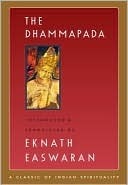More on this book
Community
Kindle Notes & Highlights
These men and women turned inward for the same reason that scientists and adventurers turn outward: not to run from life, but to master it. They went into the forests of the Ganges to find God as a poet turns to poetry or a musician to music, because they loved life so intensely that nothing would do but to grasp it at the heart. They yearned to know: to know what the human being is, what life is, what death means and whether it can be conquered.
they insist on knowing, not the learning of facts but the direct experience of truth:
They looked not at the world outside, but at human knowledge of the world outside.
The natural direction of this movement is outward, toward the sensations of experience. To turn inward, this movement has to be reversed. Throughout the first dhyana the centrifugal force of the thinking process is gradually absorbed as attention is recalled.
If a hostile person learns to slow down his thinking enough to see how much of what provokes him is projected by his own mind, his world changes, and so does his behavior – which, in turn, changes the world for those around him. “Little by little,” the Buddha says, “we make ourselves good, as a bucket fills with water drop by drop.” Little by little, too, we change the world we live in. Even the grand earthshaking events of history have their origins in individual thought.
Better than a speech of a thousand vain words is one thoughtful word which brings peace to the mind.
Ehi passika: go and see for yourself, through the practice of meditation.”


